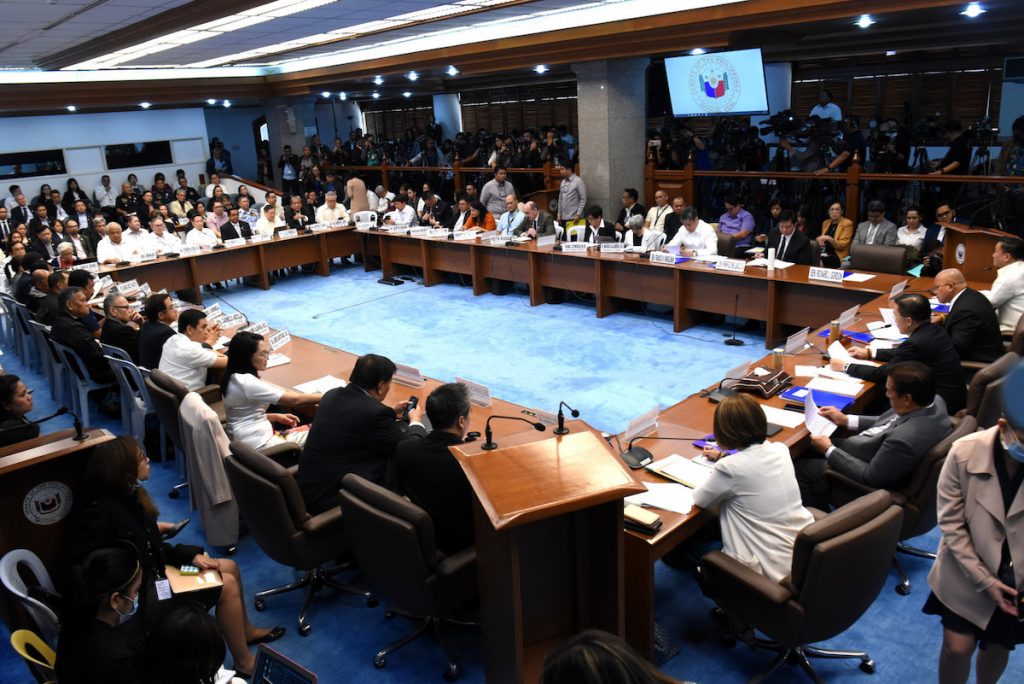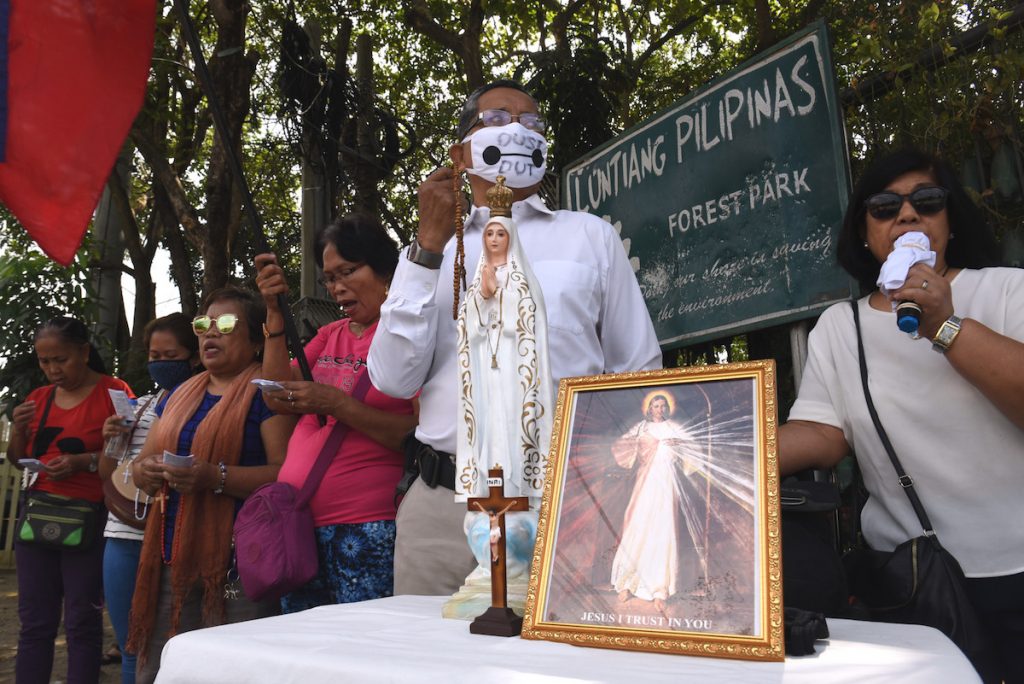Filipinos are pushing back against the Philippine government’s threat to investigate and press charges over alleged “deliberate spread of misinformation and fake news” on the spread of a new coronavirus strain.
The country’s Justice minister, Menardo Guevarra, announced the crackdown on Feb. 4, the same day the Philippine Senate held a hearing on the government’s response to the reported outbreak.
Ironically, in that same hearing, the Senate president, former actor Vicente Sotto III, presented a video that claimed the novel coronavirus was allegedly biowarfare of the United States against China.
No effort was made to verify the sources and claims of the video’s allegations.
Guevarra’s order to the National Bureau of Investigation mentioned “false reporting” on the virus that the Justice chief didn’t bother to specify.
The announcement of a crackdown on coronavirus-related “fake news” could be nothing more than a cheap attempt to douse cold water on growing public anger against President Rodrigo Duterte.
The hashtag #OustDuterte trended on Twitter last weekend as Filipinos expressed outrage over the president’s defense of Chinese government interests despite the public’s demand for a more pro-active approach to protect Filipinos against the virus.
Many Filipinos have also become adamant in demanding transparency from the Department of Health on the details of coronavirus infection-related statistics.
Some are asking why the Health minister has refused to disclose the personal circumstances, such as age, gender, and nationalities, of so-called “persons under investigation.”
If there’s anything problematic about information, it is about how the government informs the public about its response to the coronavirus outbreak.

Senator Christopher “Bong” Go, a Duterte supporter, continues to do the same things he has done as “special assistant to the president,” even attending a Cabinet meeting and continuing to speak on behalf of the president regarding the issue and other concerns.
He directly competes with the president’s spokesman, Salvador Panelo, Health Secretary Francisco Duque, and Foreign Affairs Secretary Teodoro Locsin.
In doing so, Senator Go denies the public his service as duly-elected senator: A senator and consequently a Senate that independently checks on the executive. He does not appear to ask questions in aid of legislation. He does so in aid of the president and his political survival.
(Some say this is the fault of voters who elected him, but these same victim-blamers do not hold the other senators and the entire Senate accountable for letting Go get away with it.)
Duque, the Health minister, meanwhile claims that the Philippines is not among those referred to in the World Health Organization’s declaration of a global emergency as countries with “weak health systems.”
Independent think-tank Ibon Foundation, however, noted that official budget figures point to the low priority given by the Duterte government to public health expenditures.
“While the allocation for the health sector in the national budget increased from 177.7 billion pesos (about US$3.5 billion) in 2019 to 185.5 billion pesos (US$3.7) in 2020, its overall share in the national budget fell from 4.85 to 4.52 percent. Most of the small 7.8 billion pesos, or 4.4 percent increase, is even eaten up by inflation,” noted Ibon.
According to Ibon, “the Epidemiology and Surveillance Program which monitors, investigates and analyzes disease outbreaks was cut by more than half” from 262.9 million pesos (US$5.2 million) in 2019 to P115.5 million (US$2.3 million) in 2020.
Ibon adds that the Duterte government also cut the budget for “Health Systems Strengthening Program” by 6.6 billion pesos (US$130 million), from 25.9 billion pesos (US$5.1 billion) to 19.3 billion pesos (US$380 million).
“The program is for ensuring a wide range of human health resources including doctors, nurses, midwives, dentists, allied health professions, community health workers, social health workers and other health care providers and management and support personnel.”
The health sector groups Alliance of Health Workers and the Health Alliance for Democracy have long assailed Duterte for perpetuating his predecessors’ neoliberal economic and social policies, which include promoting big pharma and big private hospitals, while at the same time starving public hospitals of the budget they need for expansion.

Even the recent passage of the so-called Universal Health Care Act does not give the public any sense of confidence that the poor, working class and middle-class families could survive the huge costs of falling victims to a new viral epidemic.
There are no new huge outlays for the expansion of the public hospitals, and that could only mean that taxpayer money would just go to big private hospitals.
Citing government statistics, Ibon says “doctor-to-patient ratio remains too low at 0.3 per 10,000,” which is way below the WHO recommendation of 1-1.5 doctors per 1,000 population.
It is only a matter of time before we find out if the crackdown on “fake news” and disinformation on coronavirus would target legitimate dissent, criticism and tough questioning by citizens.
And whether the Duterte government would be honest and transparent on the steps it is taking to protect the public’s health, and whether the president insists on putting the interests of the Chinese government over those of the Philippines.
Tonyo Cruz is a Filipino blogger, newspaper columnist, and convener of the media and arts alliance Let’s Organize for Democracy and Integrity. The views and opinions expressed in this article are those of the author and do not necessarily reflect the official editorial position of LiCAS.news.







